Indigenous Governance Database
Honoring Nations Reports
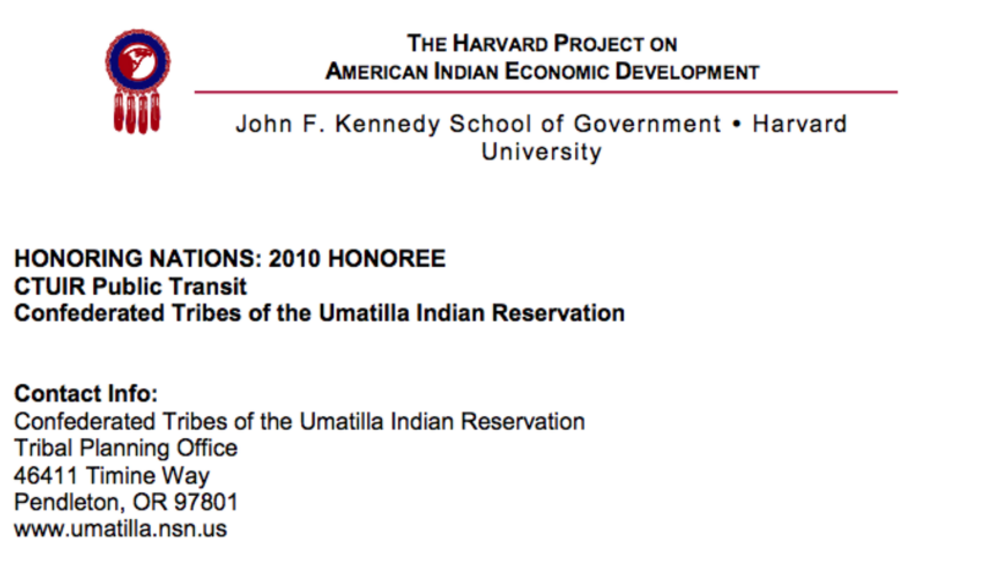
Umatilla Public Transit
In most rural areas of America, if you do not have a car it is difficult to get around. Without transportation, people must depend on friends or family for rides. It can be tough to plan medical appointments, maintain work schedules, shop for necessities, or sign up for classes. The Confederated…
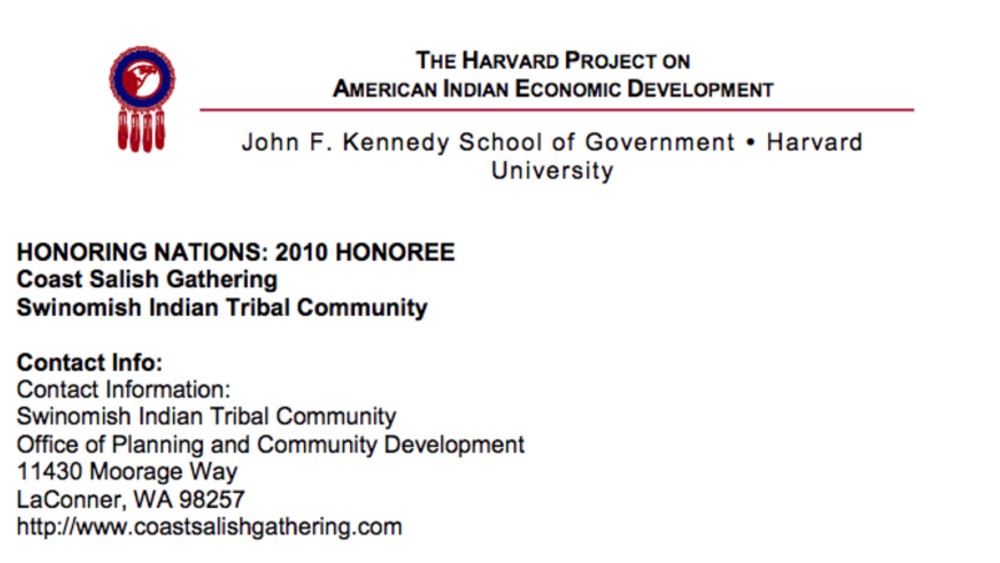
Coast Salish Gathering
Ecosystems in many parts of North America are under severe stress. Pollution, the overuse of natural resources, and habitat destruction threaten local flora and fauna. Conservation attempts often fall short because they target one species of site within an ecosystem. The Coast Salish Gathering…
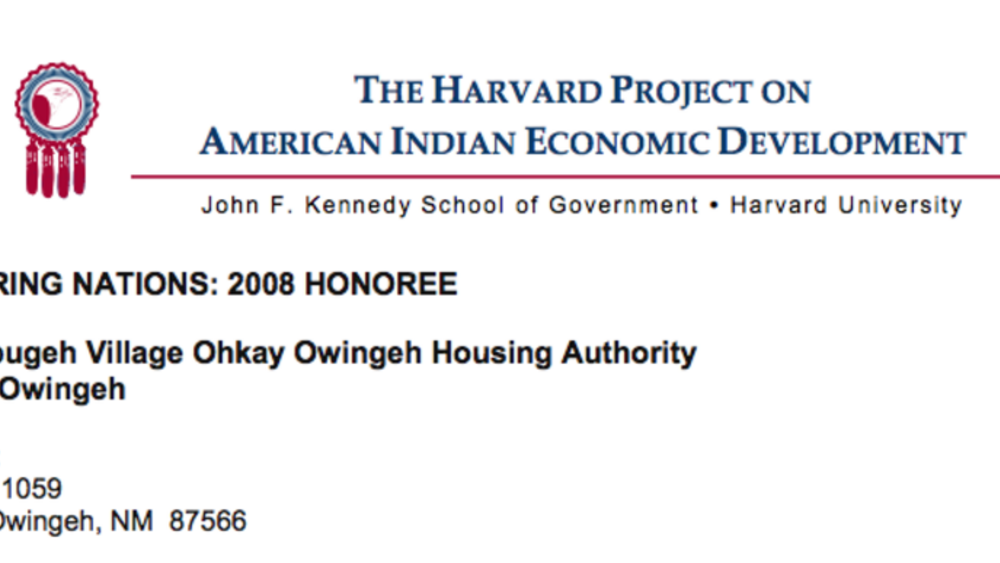
Tsigo bugeh Village (Ohkay Owingeh Pueblo)
Restoring communal living through Pueblo-style housing, the Tsigo bugeh Village offers "traditional living with a modern touch" for Ohkay Owingeh citizens. Designed to honor a sense of community and place, Tsigo bugeh addresses Ohkay Owingeh’s urgent housing demands with 40 units for single and…
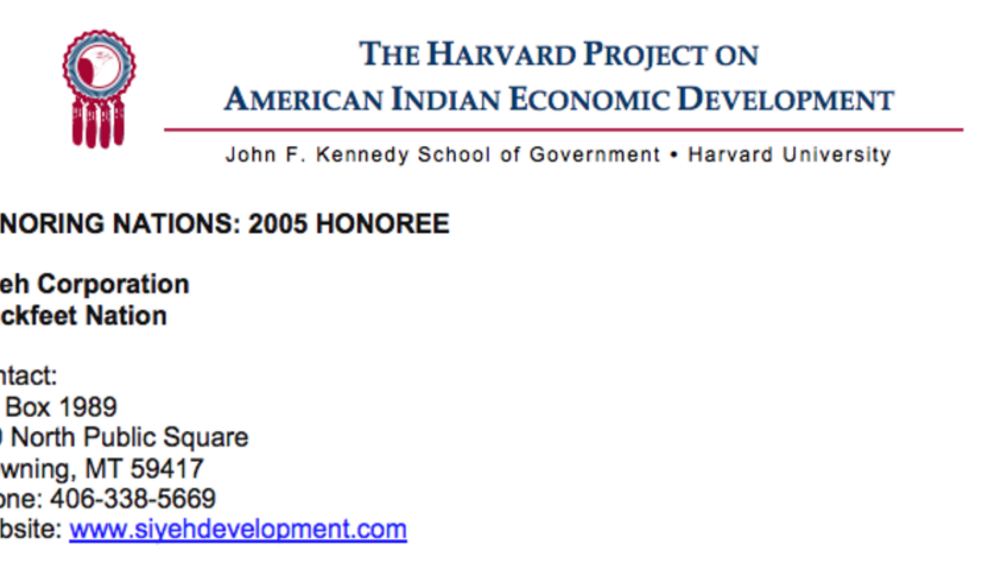
Blackfeet Nation's Siyeh Corporation
For years the Blackfeet Nation struggled to create sustainable tribal enterprises that could produce revenue for the nation and meet the needs of its citizens for jobs and services. Many of these efforts did not succeed because of conflicts within the tribal government. In 1999, the Nation tried a…
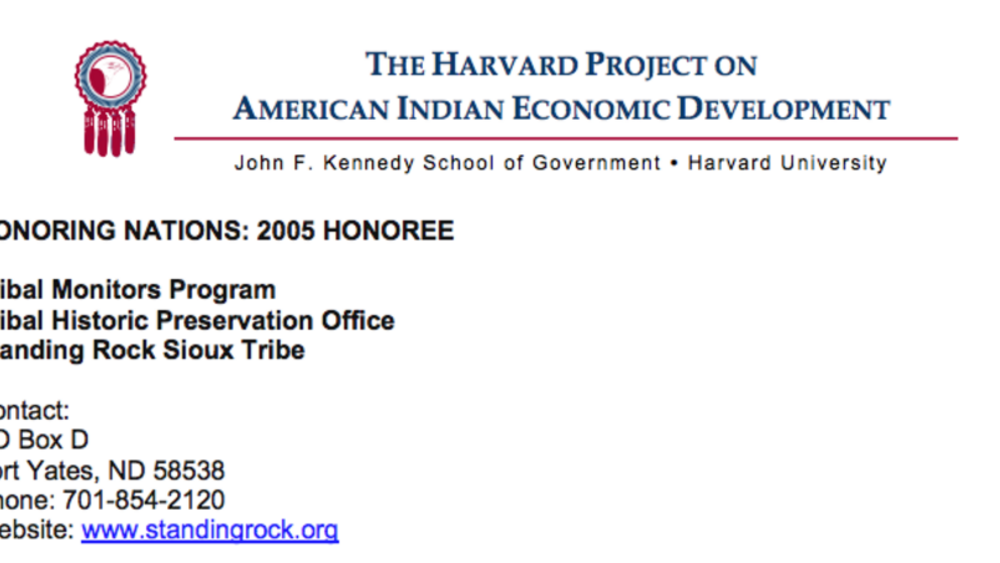
Standing Rock Sioux Tribal Monitors Program
The Standing Rock Sioux Tribe is located on 2.3 million acres of land in the central regions of North and South Dakota. Land issues rose to the forefront of tribal concerns after events such as allotment, lands flooding after the Army Corps of Engineers built a series of dams adjacent to the Tribe…
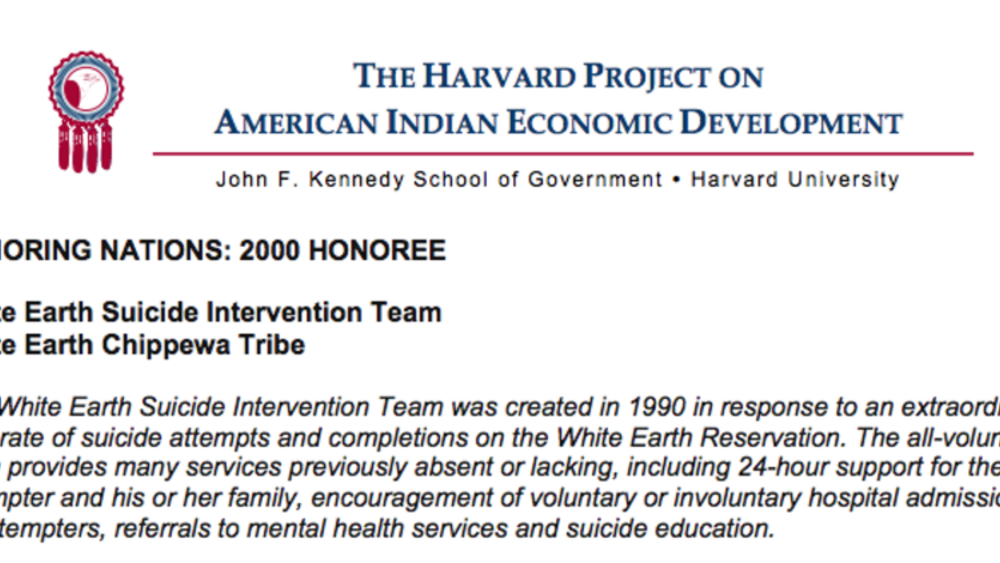
White Earth Suicide Intervention Team
The White Earth Suicide Intervention Team (WESIT) was created in 1990 in response to an extraordinarily high rate of suicide attempts and completions among tribal members living on the White Earth Reservation. With the Tribal Council’s official support, a group of volunteers came together following…
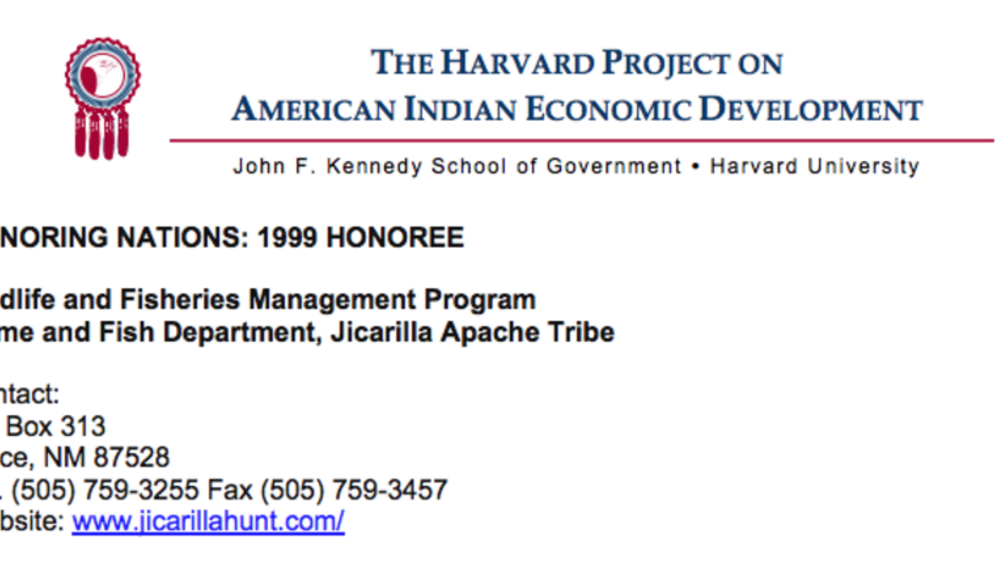
Jicarilla Apache's Wildlife and Fisheries Management Program
Recognized by state game and fish agencies as being one of the best of its kind, JGFD’s program includes a game and fish code and a wildlife management fund for habitat enhancement projects. The program restored the reservation’s mule deer population and trophy trout, and established a commercial…
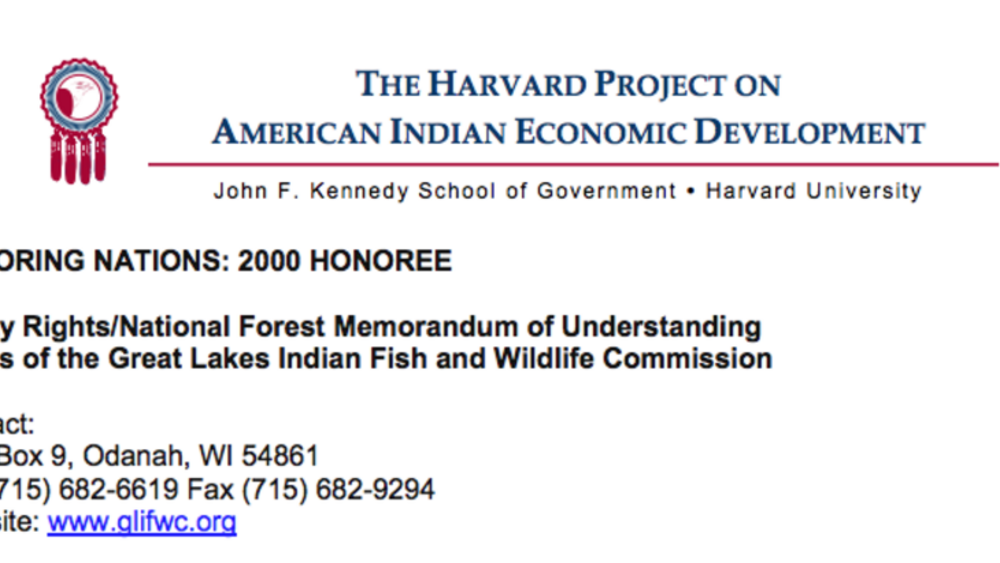
Great Lakes Indian Fish and Wildlife Commission's Treaty Rights/National Forest MOU
The Great Lakes Indian Fish and Wildlife Commission (GLIFWC), a tribally chartered intertribal agency, negotiated a memorandum of understanding (MOU) with the US Forest Service that both recognizes and implements treaty-guaranteed hunting, fishing, and gathering rights under tribal regulations and…
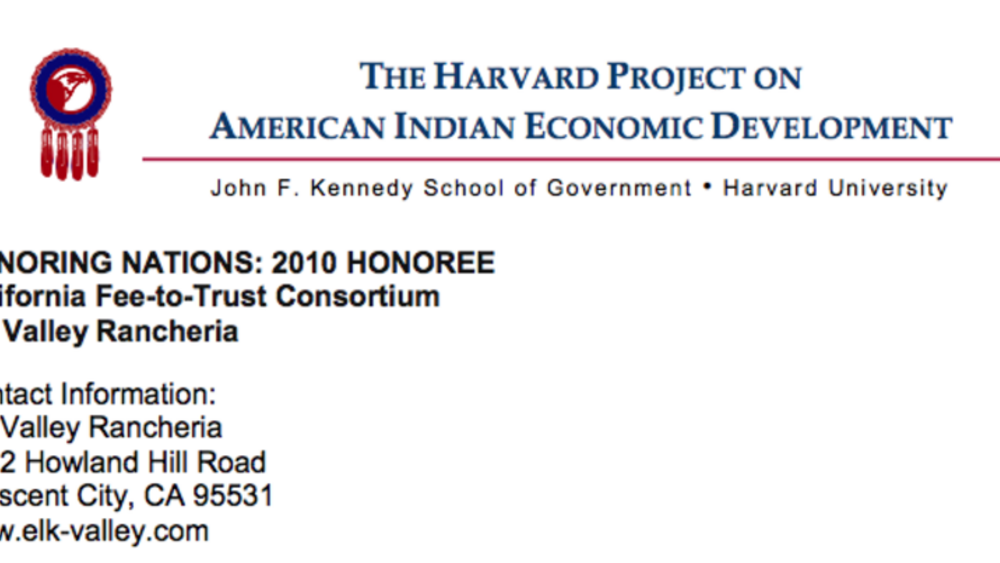
California Fee-to-Trust Consortium
The loss of traditional land is a source of longstanding trauma for Native nations. It has far reaching consequences that began at the time of dispossession and persist today. Many tribes struggle to regain territory in order to support the basic needs of their citizens – housing, economic…
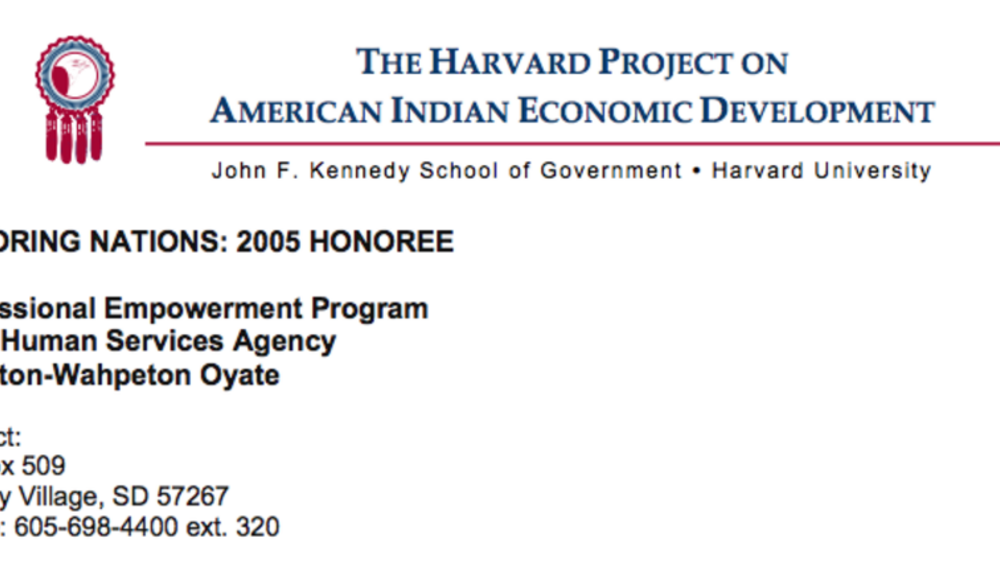
Sisseton Wahpeton Oyate Professional Empowerment Program
Across Indian Country, programs and businesses depend on skilled, committed, and responsible workers. However, some Indian citizens on reservations have limited experience in the workplace; little education; and face problems finding day care, adequate transportation, and other necessities.…
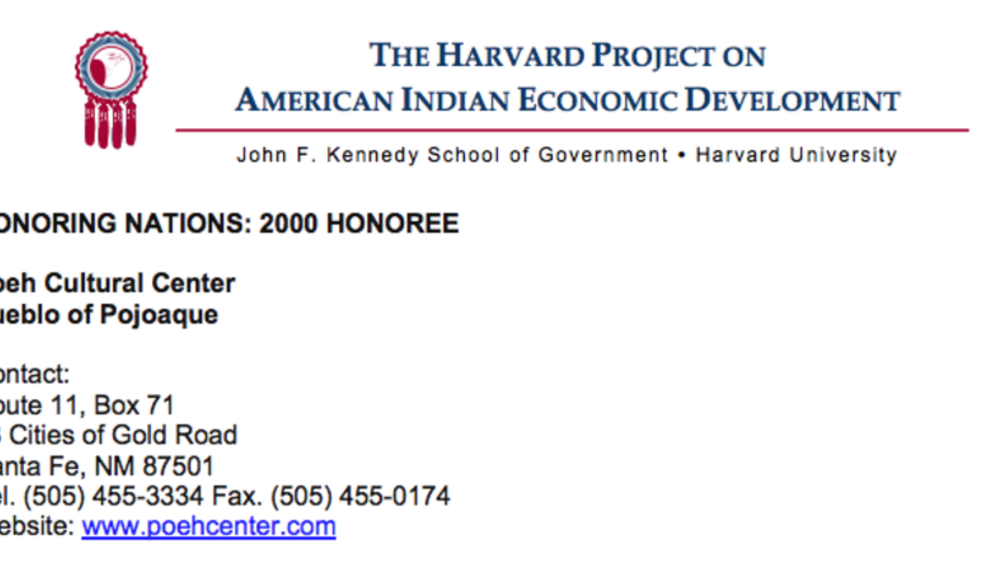
Poeh Center: Sustaining and Constructing Legacies (Pojoaque Pueblo)
Faced with the common challenge of raising funds for construction of a cultural center and museum, the Tribal Council created the Pojoaque Pueblo Construction Services Corporation in 1993. The Corporation’s chartering mandate was to generate revenues for cultural activities and to oversee the…
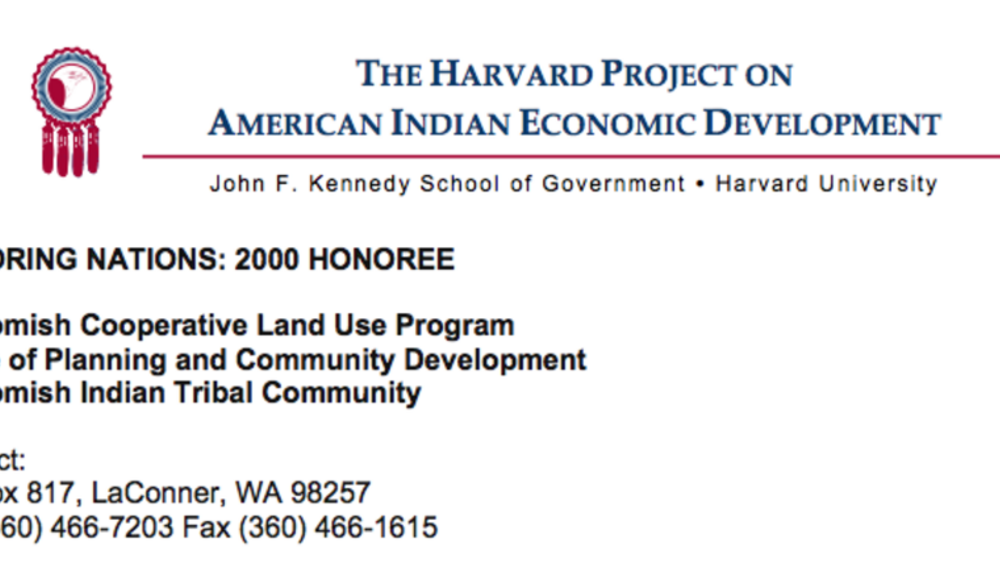
Swinomish Cooperative Land Use Program
Based on a memorandum of agreement between the Tribe and Skagit County, the Swinomish Cooperative Land Use Program provides a framework for conducting permitting activities within the boundaries of the "checkerboarded" reservation and offers a forum for resolving potential conflicts. The process,…
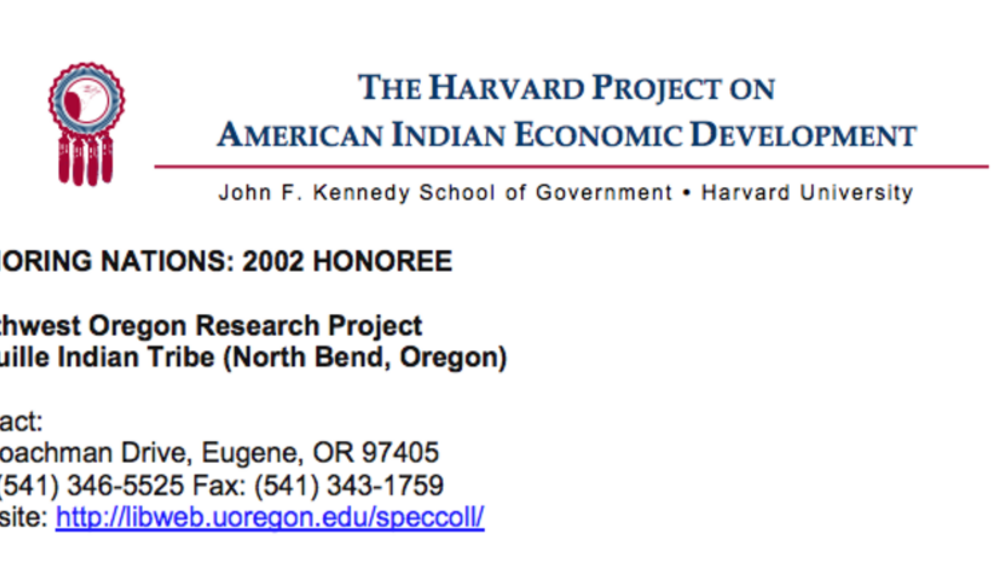
Coquille: Southwest Oregon Research Project (SWORP)
Driven by the belief that possessing historical documents and archival collections is essential for cultural self-determination, the Coquille Indian Tribe partnered with the University of Oregon and the Smithsonian Institution to launch the Southwest Oregon Research Project (SWORP) in 1995. Through…
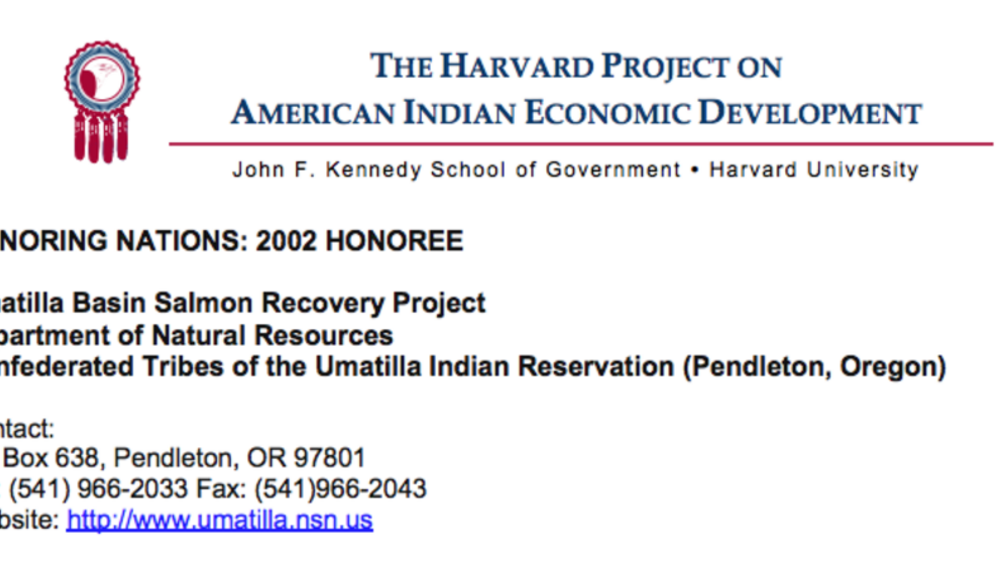
Umatilla Basin Salmon Recovery Project
The Umatilla Basin Salmon Recovery Project has successfully restored salmon to the Umatilla River, where they had been absent for nearly 70 years, while also protecting the local irrigated agriculture economy. Partnering with local irrigators and community leaders, the tribe undertook a…
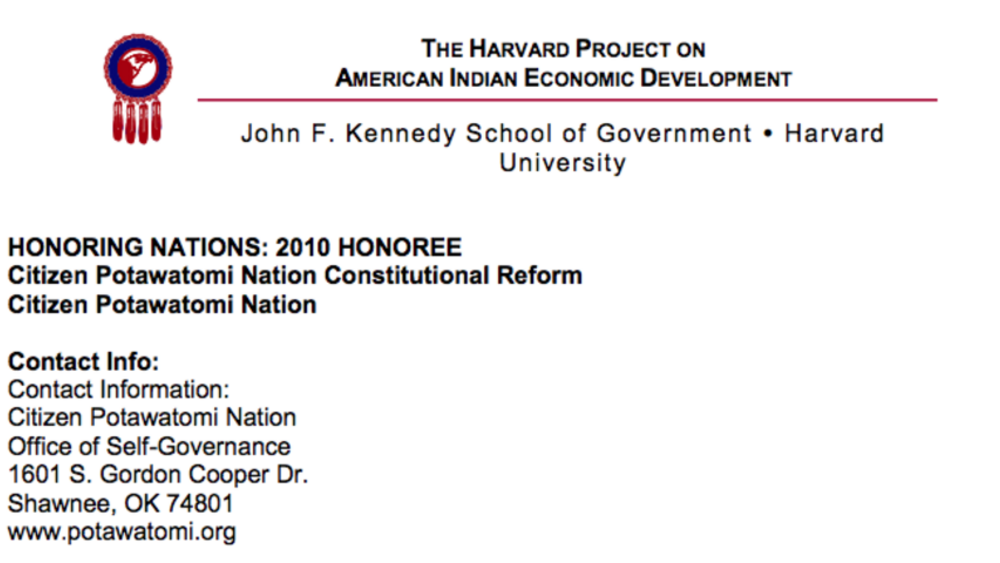
Citizen Potawatomi Nation Constitutional Reform
Tribal governments across the United States work tirelessly to provide their citizens with effective systems of governance. After years of failed assimilation attempts, the federal government imposed blanket political systems upon almost all tribes regardless of those systems’ effectiveness or…
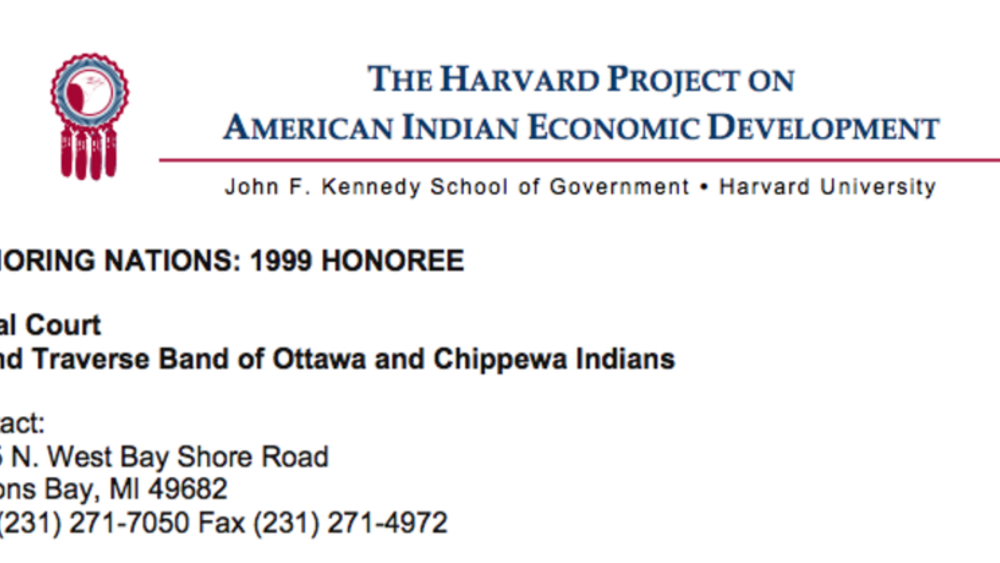
Grand Traverse Band Tribal Court
Constitutionally separated from the political influences of government, the Tribal Court hears more than 500 cases per year, and utilizes "peacemaking" to mediate in cases in which dispute resolution is preferred to an adversarial approach. The Court adjudicates on such issues as child abuse,…
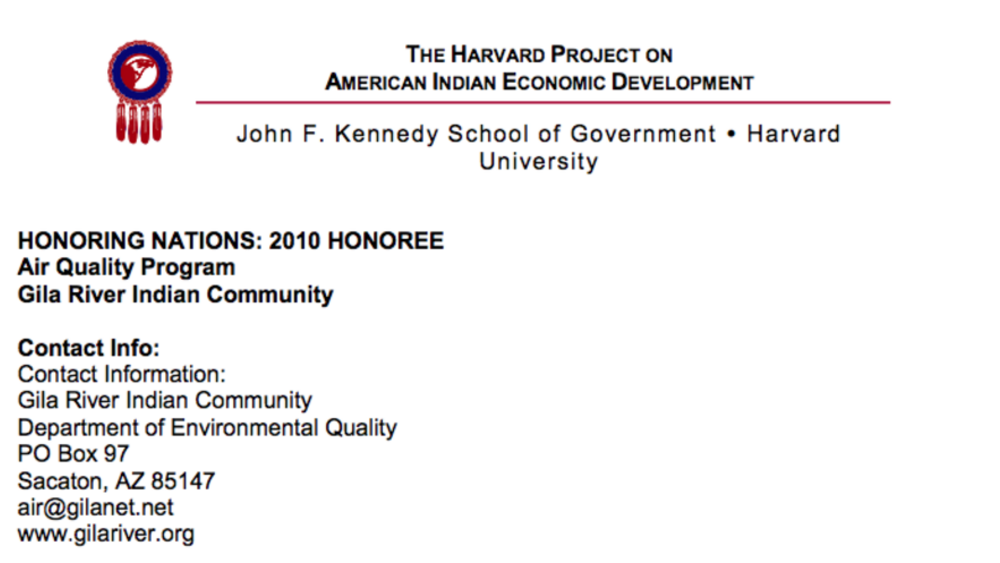
Gila River Indian Community Air Quality Program
In recent years, tribal governments in the United States have passed sophisticated laws and regulations to manage social and economic development in their communities. Although air quality is an important aspect of both economic growth and human health, very few Native nations have successfully…
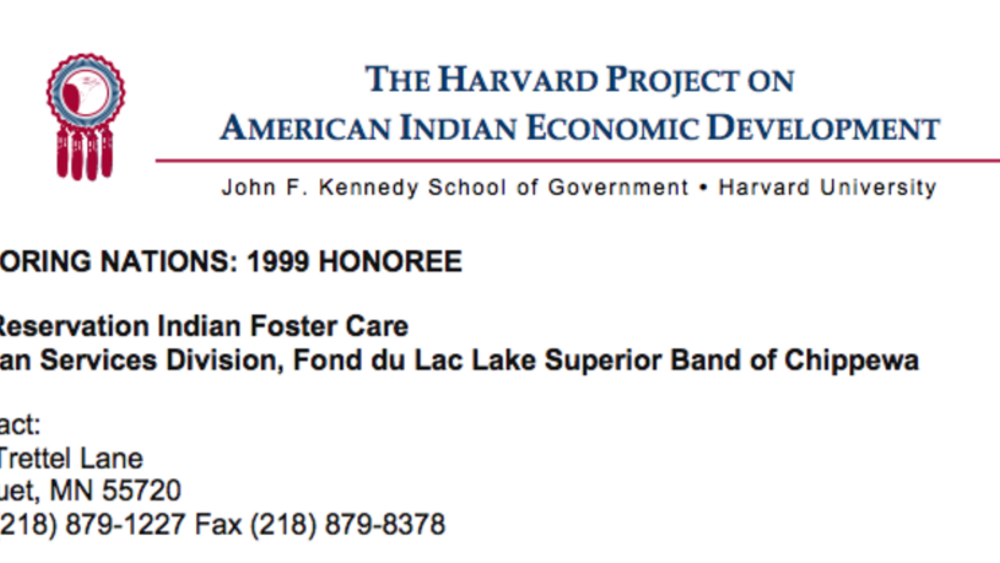
Fond du Lac Off-Reservation Indian Foster Care
By creatively reacting to state laws regarding foster home licensing, the Band established a foster care agency that dramatically reduced the number of Indian children in non-Indian foster care while simultaneously increasing the number of Indian children in Indian foster care. The agency has…
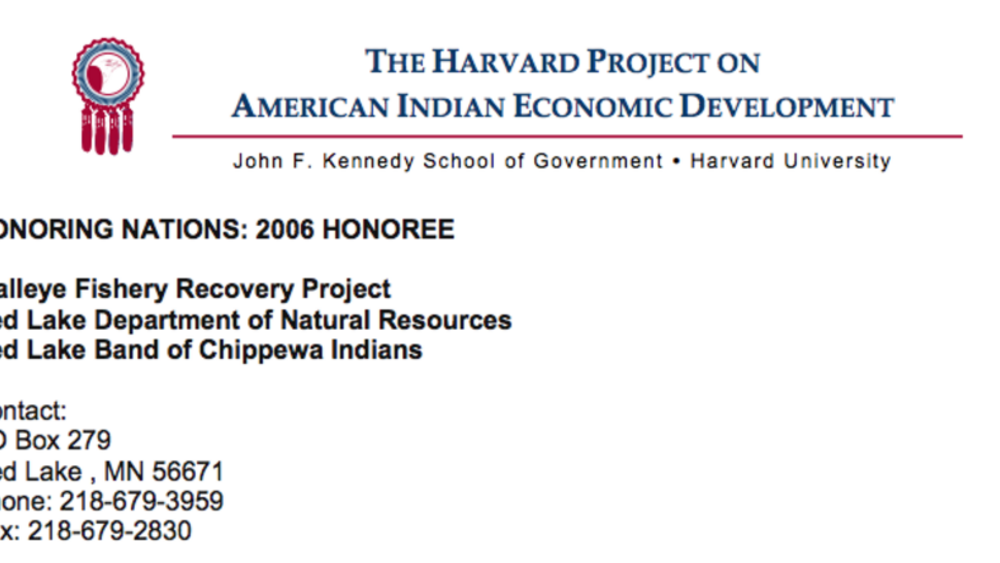
Red Lake Walleye Recovery Project
Clearly demonstrating that tribal nations not only have the ability to make large scale achievements in resource conservation, but that they can do so with unprecedented success, the Red Lake Walleye Fishery Recovery Project has brought the walleye fish population back from virtual extinction to an…
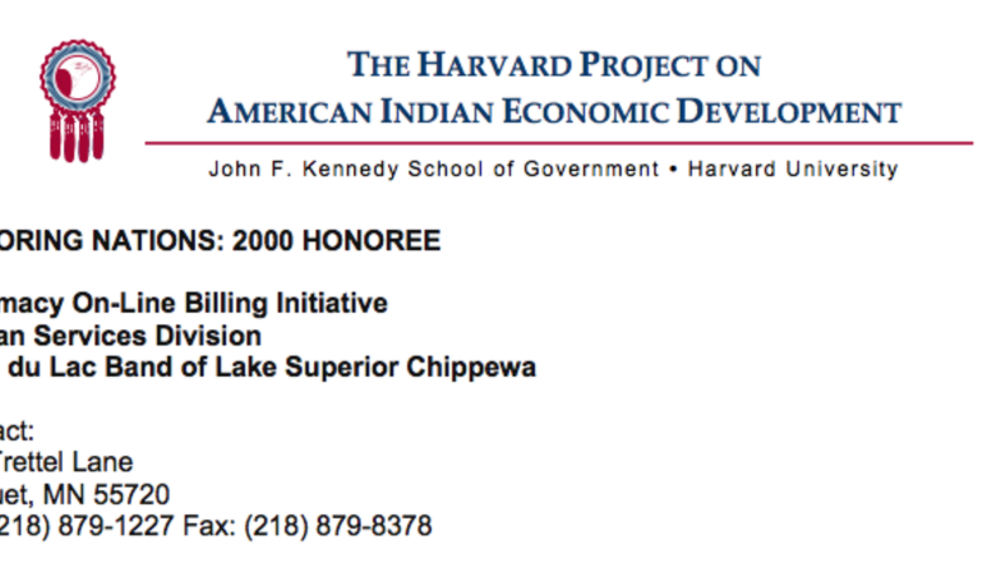
Fond du Lac's Pharmacy On-Line Billing Initiative
In 1995, faced with rising pharmaceutical costs, limited Indian Health Service (IHS) funds, and an inability to bill and collect from third party insurers, the Human Services Division contracted with a private sector firm to design and implement a computerized pharmacy billing system. The first of…
Pagination
- First page
- …
- 1
- 2
- 3
- …
- Last page
